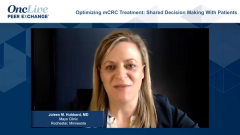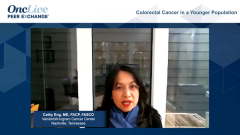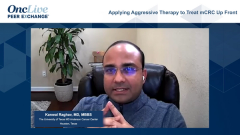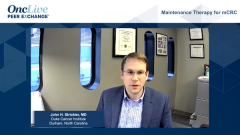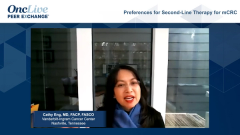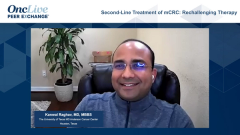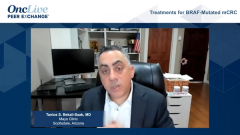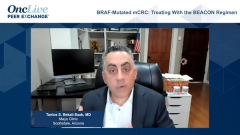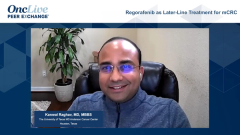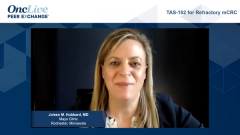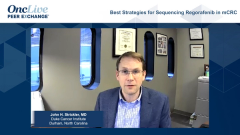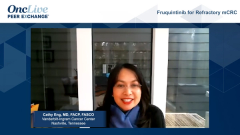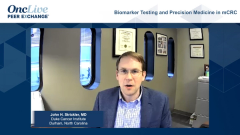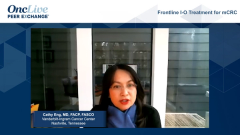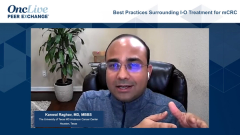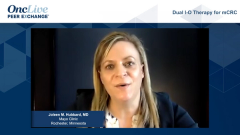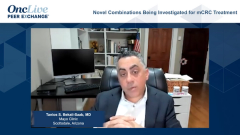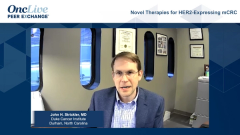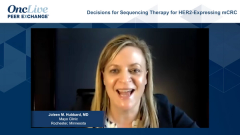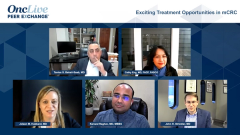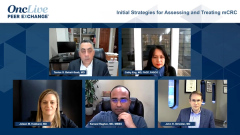
Decisions for Sequencing Therapy for HER2-Expressing mCRC
Considerations regarding best sequencing strategies with novel therapies to treat HER2-mutated metastatic colorectal cancer.
Episodes in this series

Tanios S. Bekaii-Saab, MD: Joleen, in the clinic, we have these ADCs [antibody drug conjugates], with trastuzumab deruxtecan, not approved in colorectal cancer, but an option. We have dual pertuzumab trastuzumab, lapatinib trastuzumab, and tucatinib trastuzumab. Thinking about an off-trial patient, the primary goal would be to have those patients in the trials. How do we put these things in perspective in the clinic? You see a patient with the HER2, amplified HER2; how do you prioritize one versus the other if there's a way to do that?
Joleen M. Hubbard, MD:What's interesting is patients in the DESTINY study, which was mentioned previously, with the antibody-drug conjugate, some of those patients had dual HER2-directed therapy previously and still responded. I would opt for the dual HER2-directed therapy. You can get trastuzumab pertuzumab off-label because it's FDA-approved if you don't have a study close. We, fortunately, had the MOUNTAINEER study which we would opt to enroll in. Then, reserve the antibody-drug conjugate study, if they progress on the MOUNTAINEER study. The efficacy after dual HER2 therapy for the antibody-drug conjugates, is promising. That'll be second, after the dual HER2 inhibition.
Tanios S. Bekaii-Saab, MD: It'll be the second line of defense. Cathy, is that what you think? How do you think this will evolve into the clinic?
Cathy Eng, MD, FACP, FASCO: Yes, I agree. I always encourage patients to participate in clinical trials. It's wonderful that Raghav's got his SWOGS1613 study, and John's got his Mountaineer study. We're all supportive of these studies. But, I do find the antibody-drug conjugate very intriguing. There's Destiny, the next study that's for colorectal cancer in the United States. Raghav's leading as well. I'm excited, and it encourages, once again, people to test for HER2. That's not universally done, but we would encourage people to do so because these are great opportunities for patients. Don't forget, in the original Siena data; there was a couple of metastatic colorectal. We need to encourage patients to be tested for this.
Kanwal Raghav, MD, MBBS: The ADC is particularly interesting. It's a smart bond, it just cares about the expression. One of the primary areas of interest there is, can it work in even RAS mutant patients that tend to present with HER2 amplification? Can we expand the number of HER2 patients with colon cancer that we can treat by targeting even the low HER2 expressers that are not really amplified? That drug has done that in breast and gastric cancer. Not as yet in CRC [colorectal cancer], but that's because we use topoisomerase inhibitors routinely in colon cancer. With combination drugs and increasing the sensitivity of the payload, we might be able to target that population, also.
Transcript Edited for Clarity


